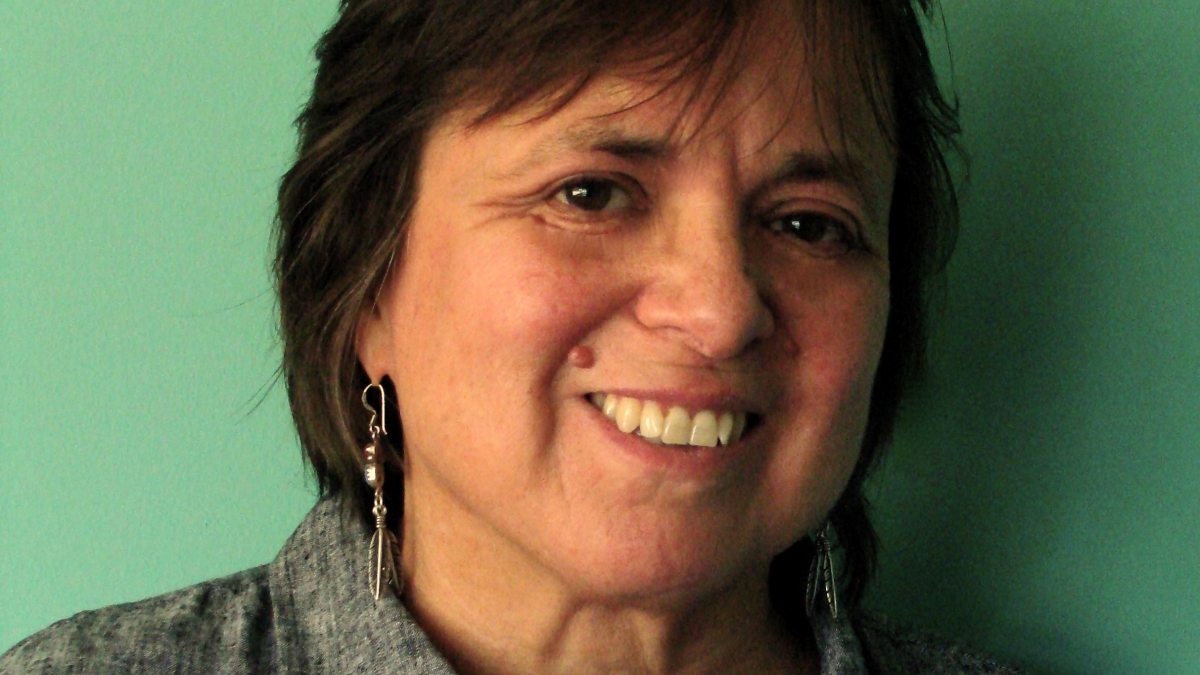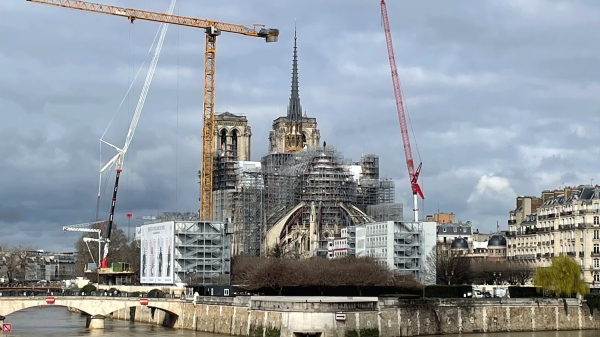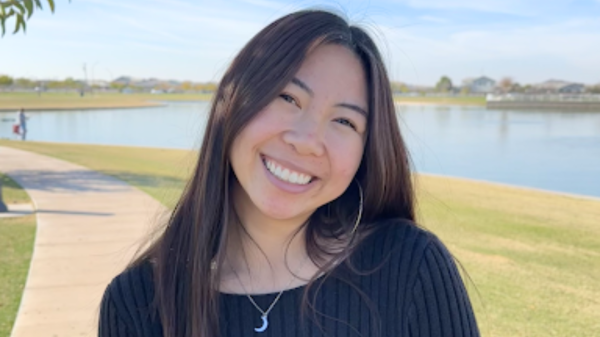Chicana literary icon Cherríe Moraga melds generational stories in new memoir
The writer and activist will present "Native Country of the Heart" at an ASU reading event this week

Writer and activist Cherríe Moraga will present "Native Country of the Heart" at a reading event hosted by The College of Liberal Arts and Sciences on the Tempe campus.
When speaking with young writers, Chicana essayist, playwright and poet Cherríe Moraga has a perennial piece of wisdom — for an authentic voice, go home.
“People think that they have to spiritually, emotionally, psychologically and physically leave home in order to become a sort of official member of society,” she said. “But your native culture, language and traditions, all of that is actually your body of knowledge and what you bring to the world.”
Moraga, who co-edited the trailblazing feminist anthology, “This Bridge Called My Back: Writings by Radical Women of Color,” has produced writing and theater work challenging the dominating gender, race and sexuality narratives of American society to far-reaching acclaim over the last four decades.
She has continued that legacy as a teacher — first as an artist-in-residence at Stanford University’s theater studies department, and now as an English professor at the University of California, Santa Barbara.
In her latest work, Moraga is applying the same advice she gives her students, to herself.
Released this April, “Native Country of the Heart” spotlights Moraga's mother, Elvira Isabel Moraga, who grew up working as a laborer in farms along the border and as a “cigarette girl” in Tijuana before becoming the matriarch of Moraga’s family home in California’s San Gabriel Valley. Interlaced with the story of Elvira's life and eventual descent into a painful battle with Alzheimer’s disease is Moraga's own journey coming out as a queer woman and defining herself in the American culturescape. The resulting text is a deeply intimate look into the experiences of Mexican Americans, through the multi-generational lens of one family.
For Moraga, the work was a chance to give life to her mother's stories, and her own.
“I’ve been telling my students for years in order for their work to be original, they have to be familiar with themselves,” Moraga said. “And while I’ve written about some of these subjects before, it’s never been quite from this vantage point, so I hope that the book also serves as an example of that.”
Moraga will present the memoir in a public reading Wednesday, April 10 at 5 p.m. at the Memorial Union on Arizona State University's Tempe campus. Refreshments will be served. The event is organized by The College of Liberal Arts and Sciences, with support from the Department of English, the School of Social Transformation, the Virginia G. Piper Center for Creative Writing, the School of International Letters and Cultures, and the School of Historical, Philosophical and Religious Studies.
Ahead of the event, she answered a few questions about the new book, her work as an educator and activist, and the young voices she’s listening for today.
Question: “Native Country of the Heart” is a departure from some of the work you’ve done in the past. What prompted you to write about your mother in this way and to interlace it with your own experiences?
Answer: In a lot of ways, the book itself was really initiated by my mother and her illness. From the time I first began to realize she was losing her memory, to her finally being diagnosed with Alzheimer's in her late 80s, I began to just be present with her.
Of course it was very hard, but I felt like I also learned a great deal from it. All of her siblings were also passing during that period of time, and I felt like I was seeing the end of a specific period of time for Mexicans in the United States that was not going to be repeated. The process really made me think about issues of Mexican American assimilation and our own cultural amnesia, generation after generation. That brought a lot of larger questions for me.
Q: The book delves into your childhood in California and how relationships with your mother and family at large affect your sense of self. How do you think your concept of identity has changed throughout your life?
A: Well at 66 years old, I have seen a lot of changes! On some level, I see my life being about continuing to evolve year by year, decade by decade, and I also feel like my writing has kept me honest.
Being a first-generation college graduate is one main difference between my mom and me. Because I had that education, I had the opportunity to reflect, to contemplar, to analyze. I also think being queer put me in a position to question everything from religion and nuclear family, to the concept of patriarchy. Many of those things informed my feminism too. Especially in the beginning, it allowed me to connect gender with issues of race and class.
So I think all of these things have forced me to consider the interconnections between sources of identity and create a path toward liberating myself.
Q: The relationship between Mexico and the U.S. is very present in the news and our national conscious. What has it been like to detail your own journey in that environment?
A: That was actually one of my interests in doing the book as well. I think in the popular imagination of the U.S., Mexicans are always kind of perceived as being immigrants.
But there are also the stories of those of us who aren't really immigrants and not even the grandchildren or great-grandchildren of immigrants. Many of us have been here since the beginning of time.
This book shows that there are people of Mexican heritage who believe the classic American dream is too high a price to pay if it means losing our culture. I think the book has that intention — to let people know that it is OK to keep our home cultures. There is such a limited understanding of all the different people who make up the country. I’d like to think this work helps bring that to light.
Q: “This Bridge Called My Back” is over three decades old now, but the work has been a cornerstone for generations of writers. How does it fit into today’s discourse about topics of class, race and feminism?
A: It’s almost 40 years old now, you’re right, but I think the work was at once personal and political, which has a lot of value for people who are trying to understand the multiplicity of oppression today. I think it also introduced the whole concept of women of color feminism. This was a concept that had been in the works since the mid-1970s, but the book kind of articulated that common cause. It specified the women who were behind this movement at that period of time, which has of course changed a great deal since then. Today it encompasses many, many more voices.
Q: How do you think young writers today are adding to that knowledge base and changing that conversation?
A: Many of the writers I’m working with or following now are not necessarily largely recognized quite yet. Some are working in academia or another sphere. There is also this burgeoning of coming-of-age work that I think is really powerful and important. I have also been watching work that looks at how colonization continues to affect us. These people may not be getting published, necessarily, but they are very important thinkers.
In terms of how writers today differ from those from my generation; something they have that we didn’t is the work that we have already done. And I don’t say that to aggrandize myself, but just to say that there was simply no body of text for us to look to, especially in regard to feminism or queer identities. That being said, I think I also look for the writers who are a little bit dangerous. We need them to be there to challenge us.
More Arts, humanities and education

Chemistry classes are key to art student's success
Amanda Barnette has a passion for art preservation. That means that, for the past four years, the Arizona State University…

ASU+GSV Summit tackles big questions about AI, technology, education
Editor's note: We'll be updating this story daily throughout the summit. The annual ASU+GSV Summit kicked off in San Diego on…

Sanford School Dean’s Medalist passionate about serving families, community
Editor’s note: This story is part of a series of profiles of notable spring 2024 graduates. Helping families and children…